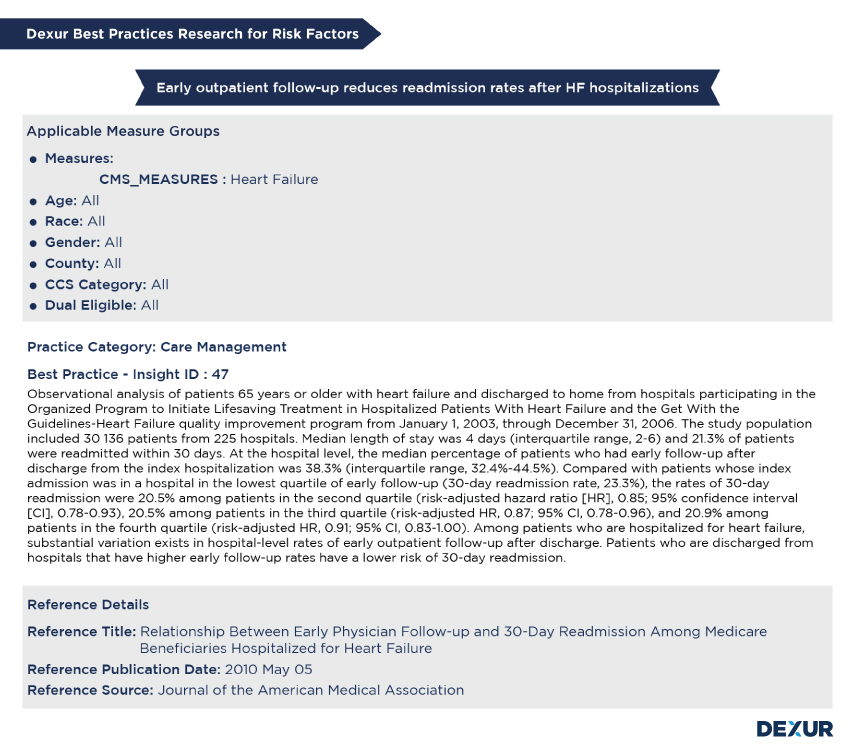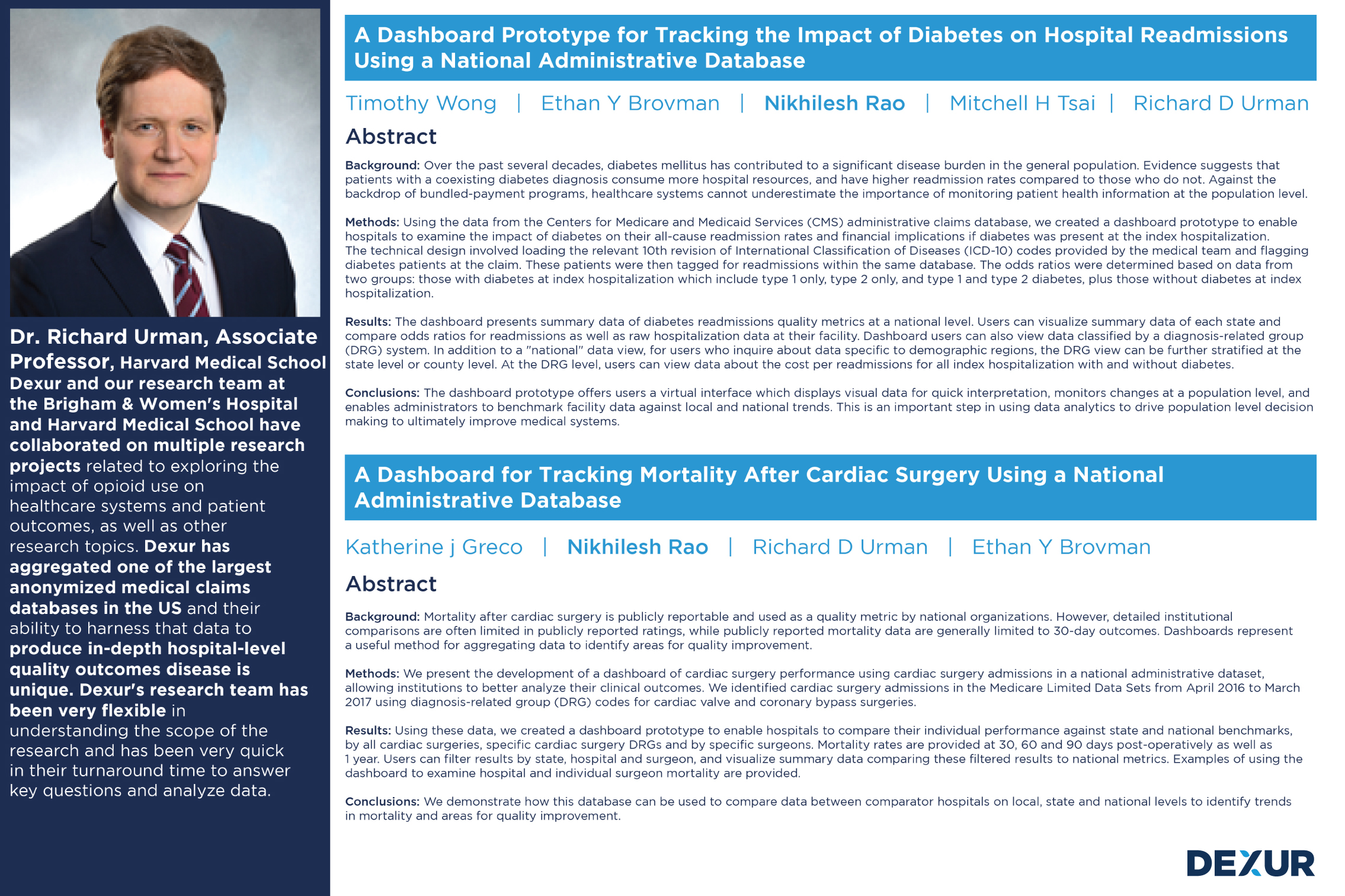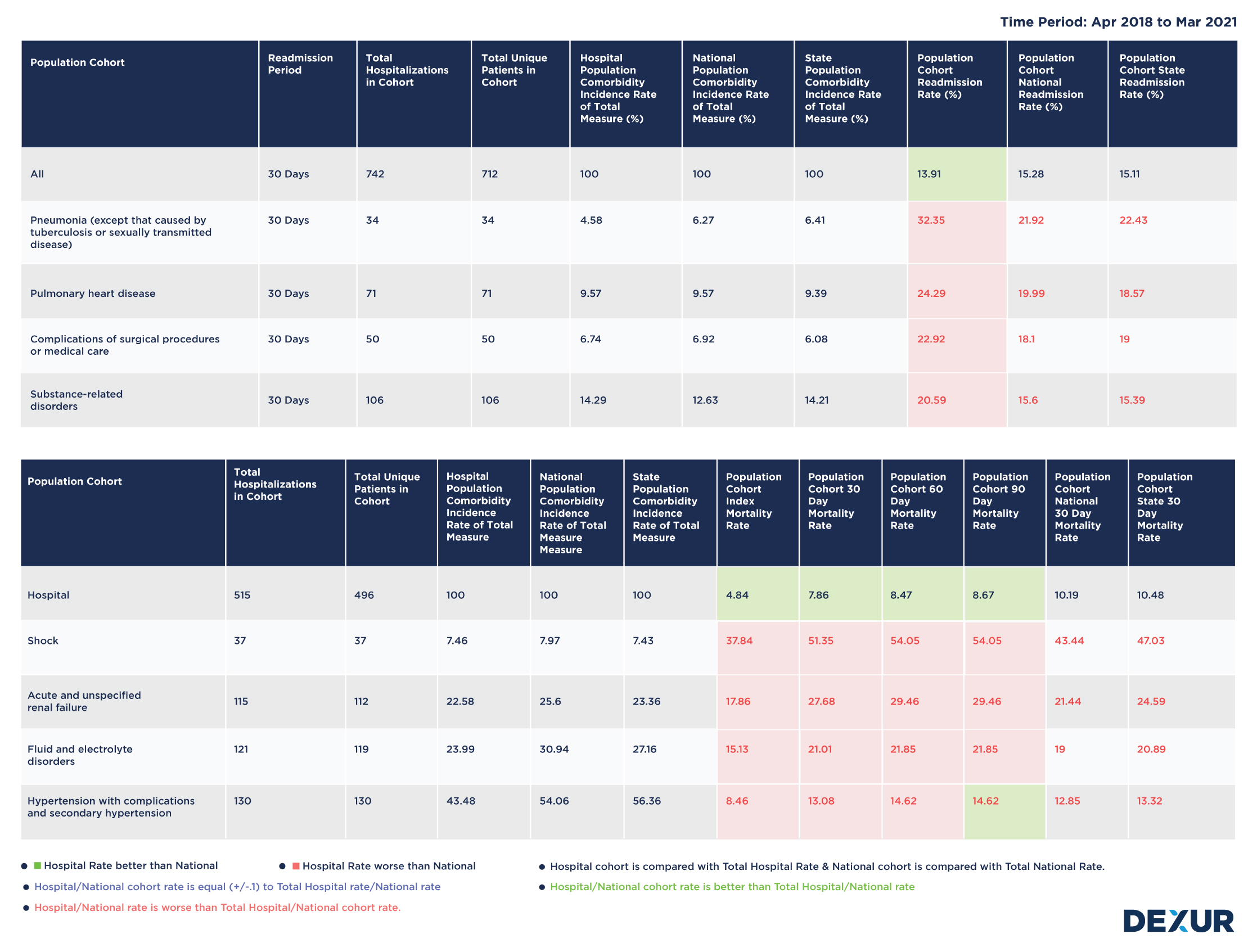Dexur Real World Evidence (RWE) Risk Factors for Hospital Quality
Readmissions & Mortality are a critical factor in quality programs
Readmission and Mortality are hospital quality measures that reflect dimensions of quality of inpatient care. Dexur calculates Readmission and Mortality rates for all CMS measures and uses its Real World Evidence (RWE) based research to identify Hospital Specific population Micro Cohorts that pose a higher risk for readmission and mortality. Reduction in Readmissions and Mortality rates help Hospitals improve their outcomes for various cost and quality programs including:
- CMS Star Ratings are calculated by considering the weighted group score of five measure groups. Readmissions & Mortality measure groups contribute 22% each to the total summary score of the Hospital.
- Value-Based Purchasing (VBP) program, which decides the incentive/penalty of each Hospital, consists of 4 measure groups with equal weightage. Medicare Spending Per Beneficiary Costs (sole driver of Efficiency and Cost Reduction domain) are driven by Readmissions, and Safety of Care domain is driven by Mortality, which together contributes 50% of the total VBP score.
- Hospital Readmissions Reduction Program (HRRP) aimed at improving the quality of inpatient care by reducing Hospital revisits are propelled solely by Readmissions.
- BPCI-A, ACO, and Value-Based Care models are affected by the Hospital’s performance in Readmissions and Mortality measures.
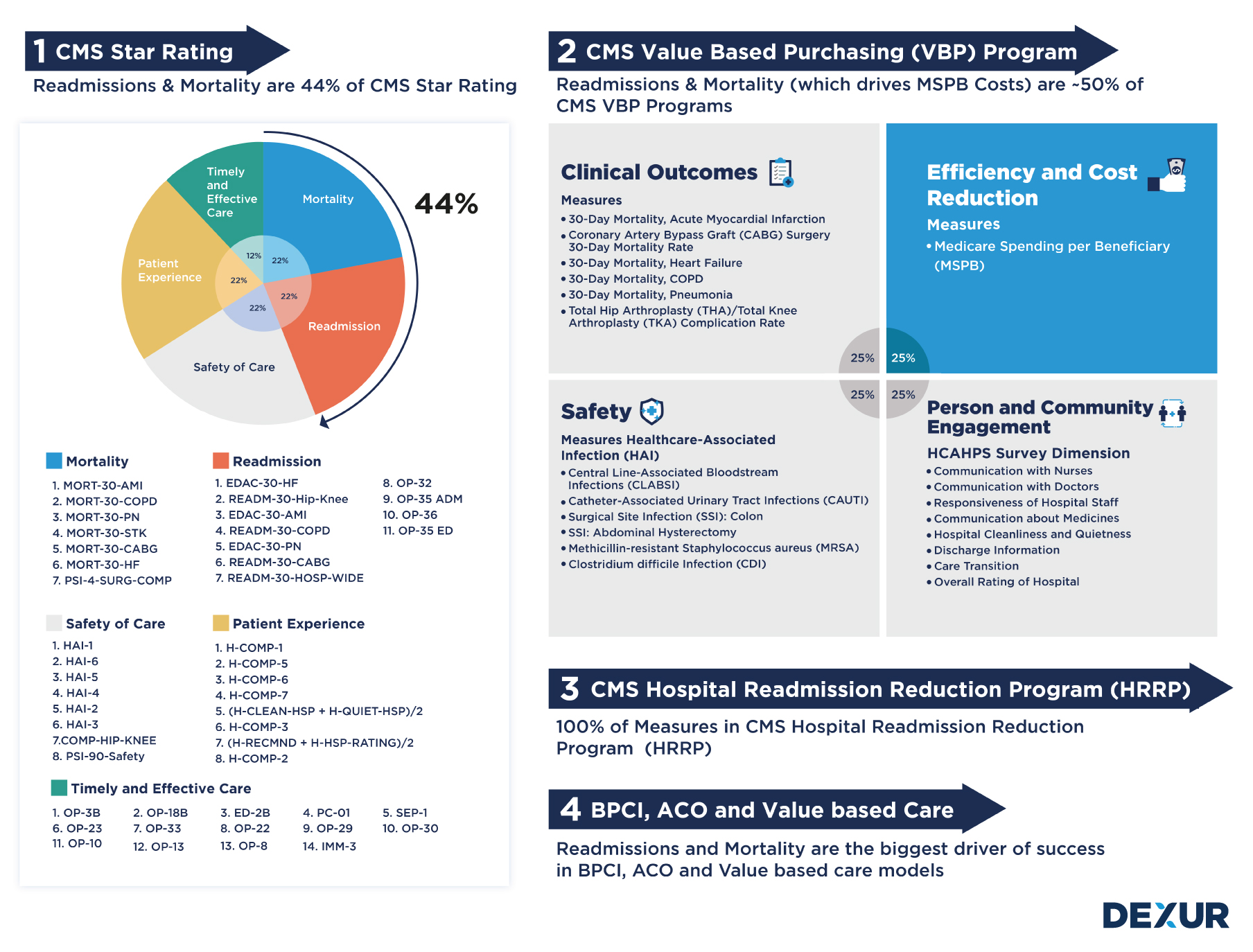
Dexur Differentiators in Helping Hospital Quality Outcomes
Dexur is a CMS-approved buyer of Medicare claims data and has complete cost and quality data for each stage of an episode. Dexur's team of professionals focuses on quality outcomes and assists hospitals in overcoming Data, Expertise, Data size, and Best Practices research obstacles.
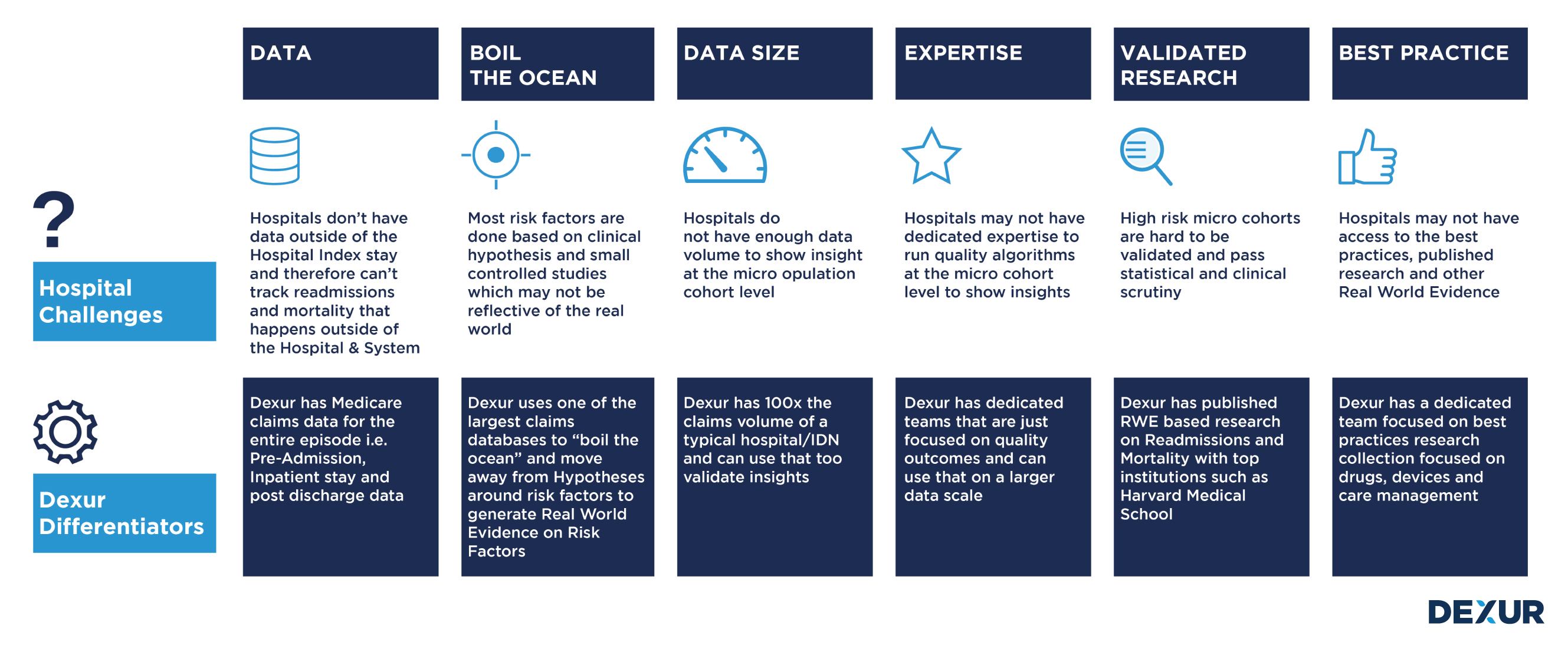
Dexur has Post Index Hospital Stay Data
Dexur has Medicare claims data that tracks the patient longitudinally across the patient journey and post-discharge activities. This data gets a more complete view on Readmissions to any Hospital and out of Index Stay Mortality Statistics.
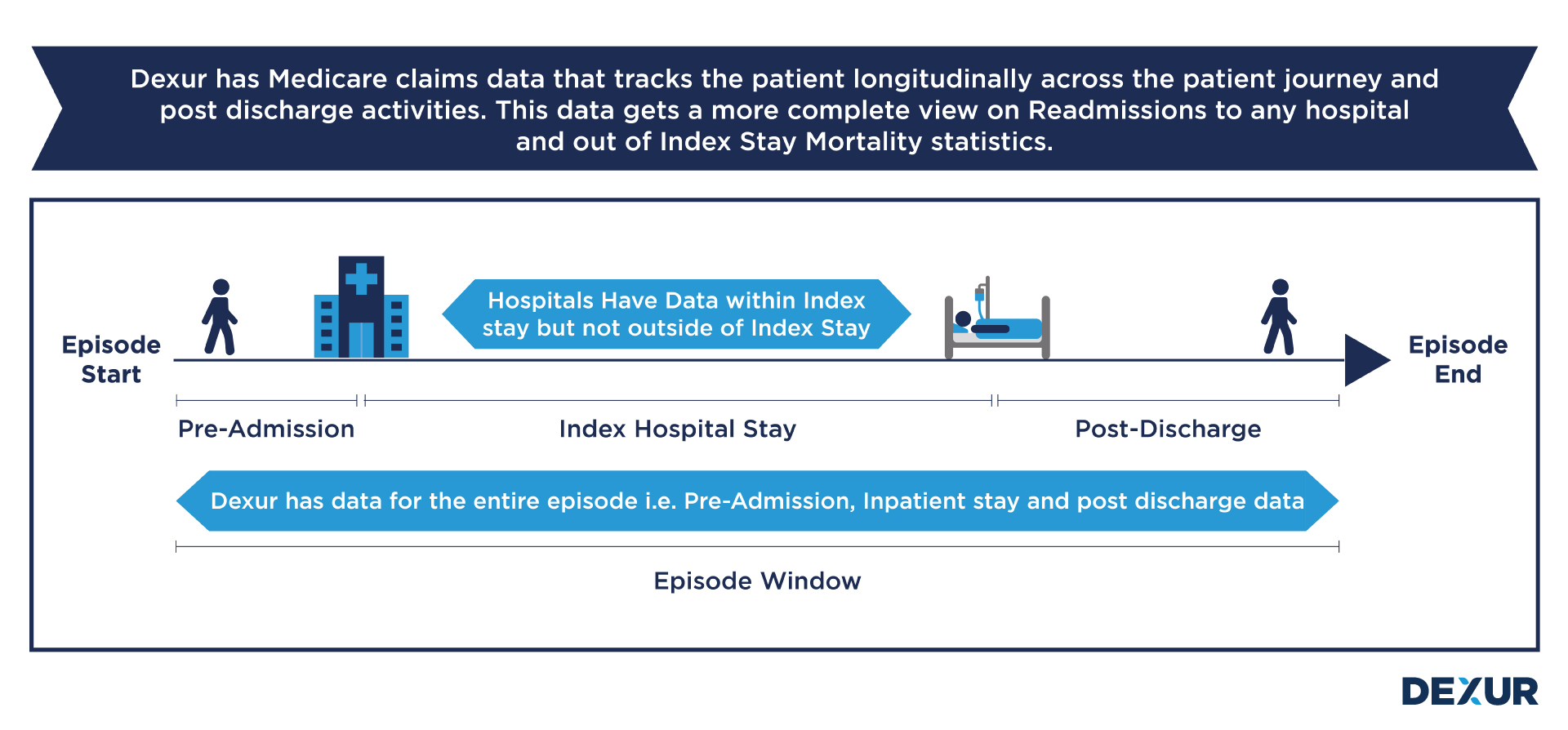
Dexur has the algorithms expertise
Dexur has the most recent quarterly data, which it uses to replicate CMS algorithms, monitor quality measures, and generate advanced insights like the micro-population cohort details that have the most impact on CMS measures.
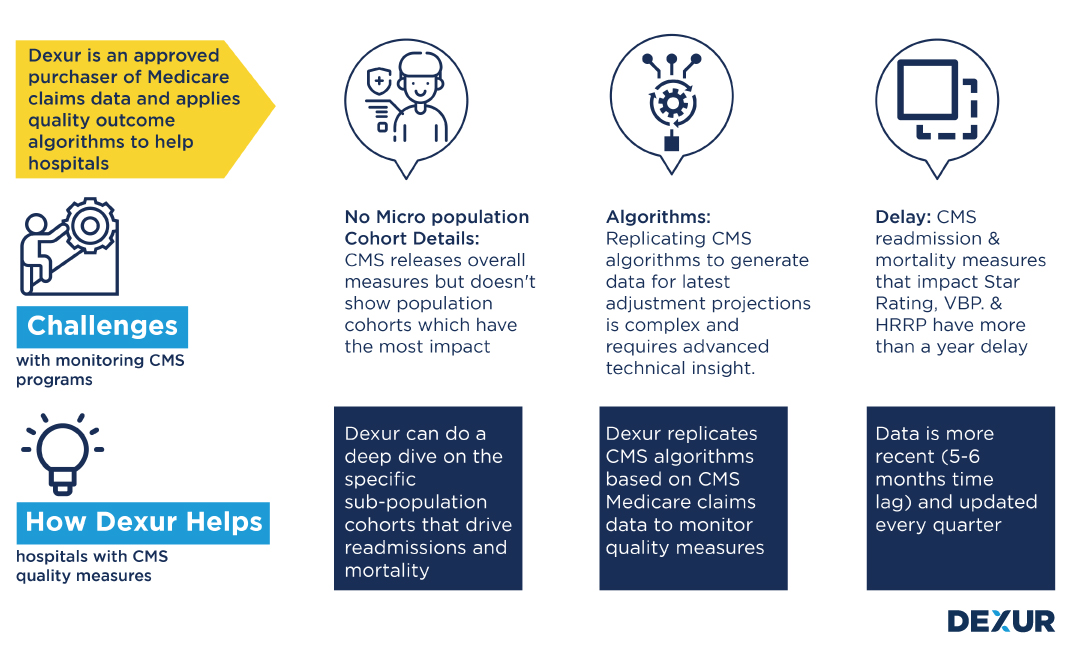
Dexur’s data is 100x the volume of a typical hospital
Dexur’s 17M yearly inpatient encounter volume is 100x more than a large IDN (~170k Hospitalizations per year). Dexur is also an approved purchaser of Medicare claims data and has complete readmission and mortality data to show the difference between patients' Index stay and readmission, and identify if they have died outside the Hospital.
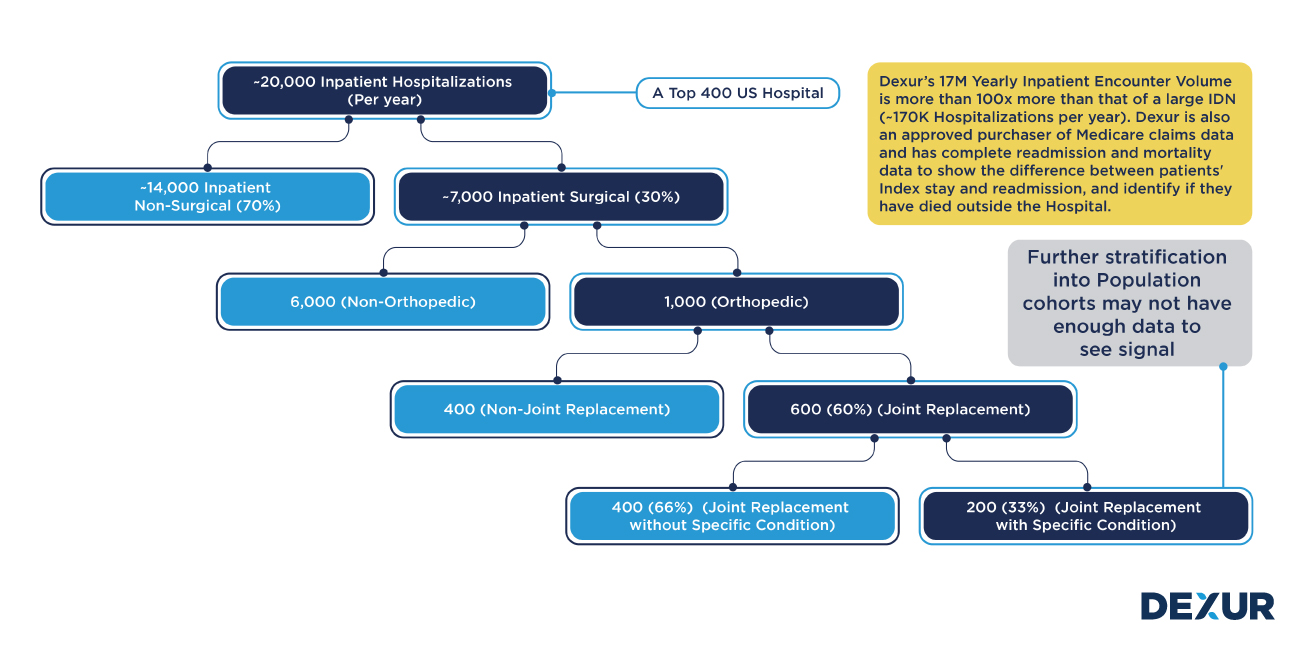
Boil The Ocean Using RWE Approach
The traditional approach to risk factor assessment is based on Hypotheses formulated on smaller data sets and studies which fail to capture the entire range of risk factors. Dexur brings in a breakthrough approach where it boils the ocean on one of the largest claims databases to come up with Real World Evidence (RWE) based Hospital specific risk factors and their Hospital, National and State benchmark comparisons.
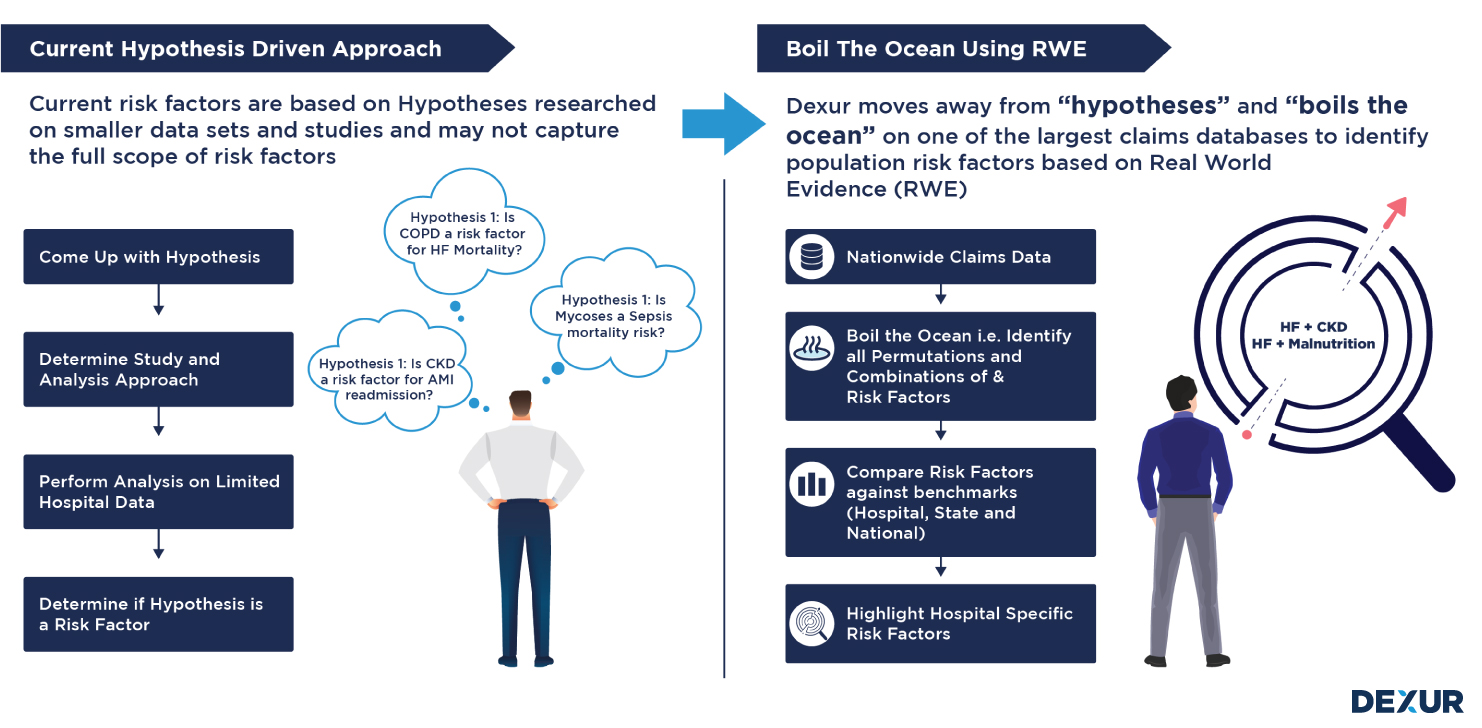
Dexur’s best practice research helps in implementation
Dexur has a dedicated team that focuses on drugs, devices, and care management to help Healthcare providers implement and adopt the best practices that can reduce risk and improve the quality and effectiveness of care.
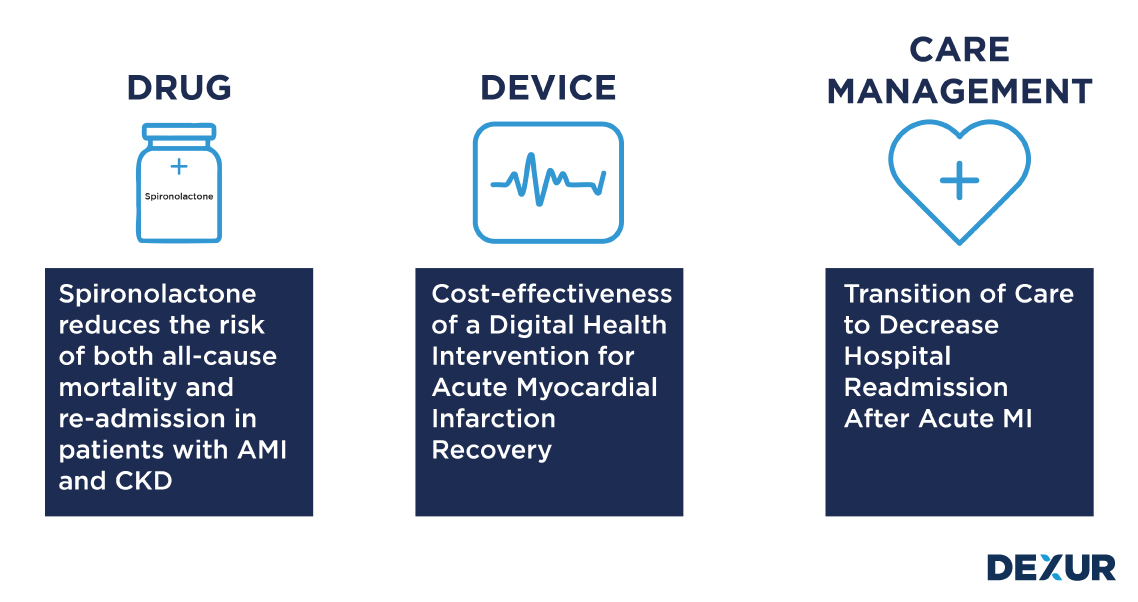
Dexur Real World Evidence (RWE) Risk Factor Selected Criteria
Dexur Real World Evidence (RWE) Risk Factors allow users to select patient-specific hospitalization characteristics such as Measure Group, Race, Age, Gender, Dual eligibility status, County, and Comorbidities for any Healthcare facility. Based on selected criteria, Dexur shows specific risk factors that affect the Hospital quality outcomes such as readmissions, mortality, LOS, costs, and other quality outcomes and suggests the best practices to manage these risk factors.
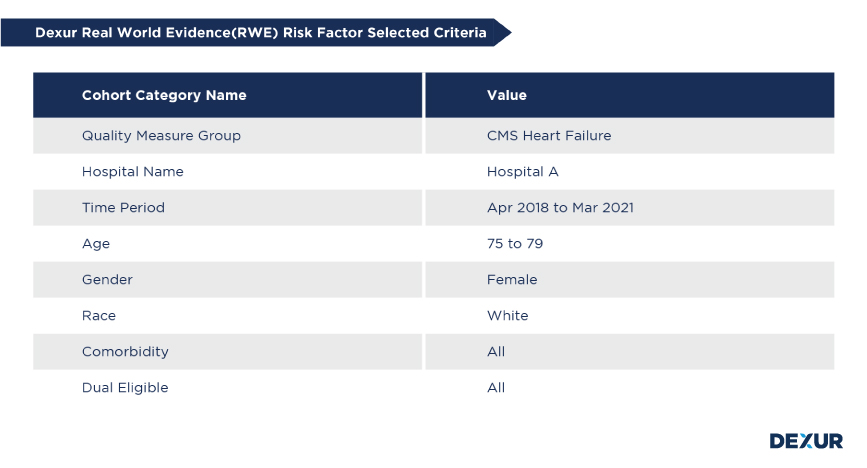
Dexur Real World Evidence (RWE) Risk Factor Scores
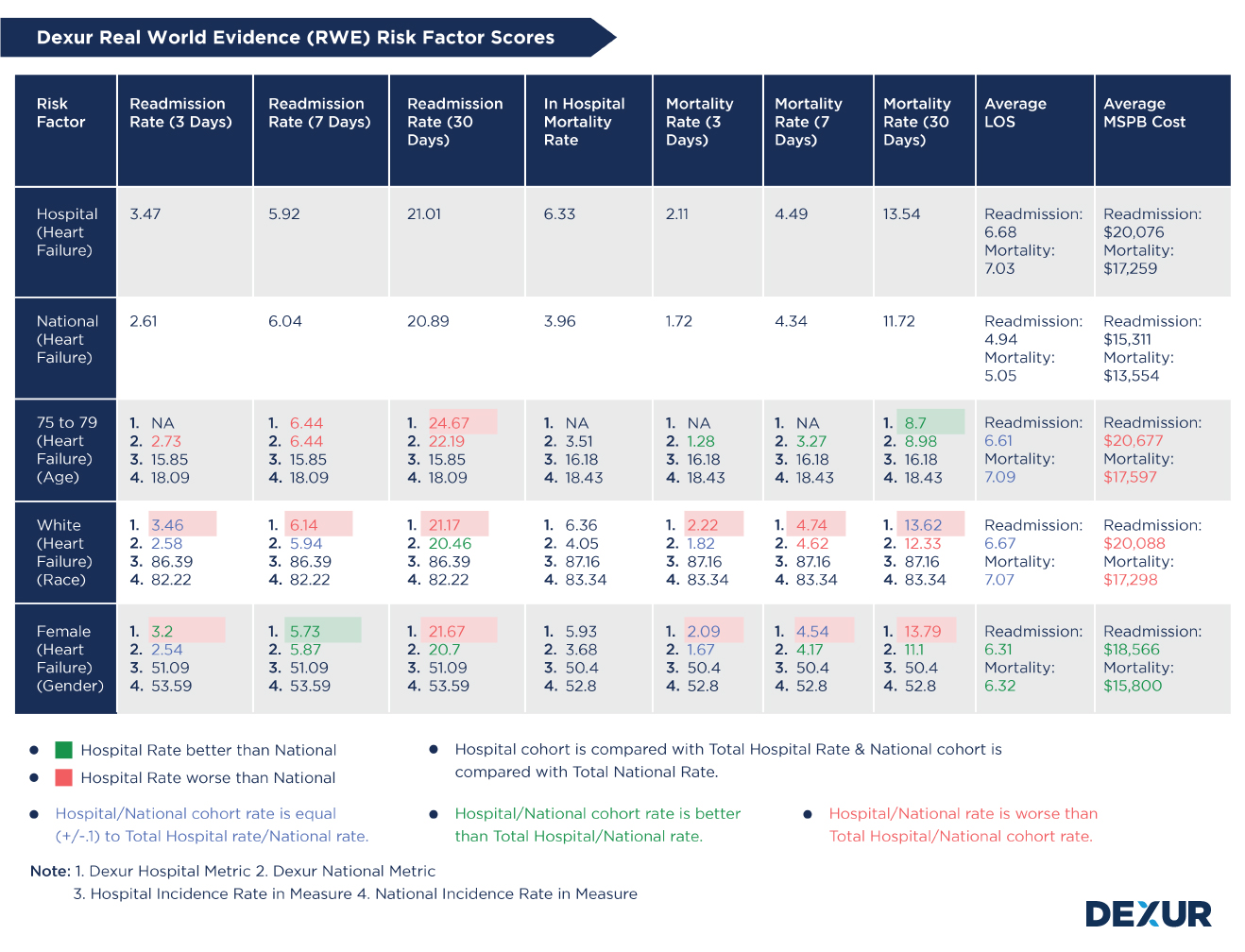
Dexur Best Practices Research for Risk Factors
